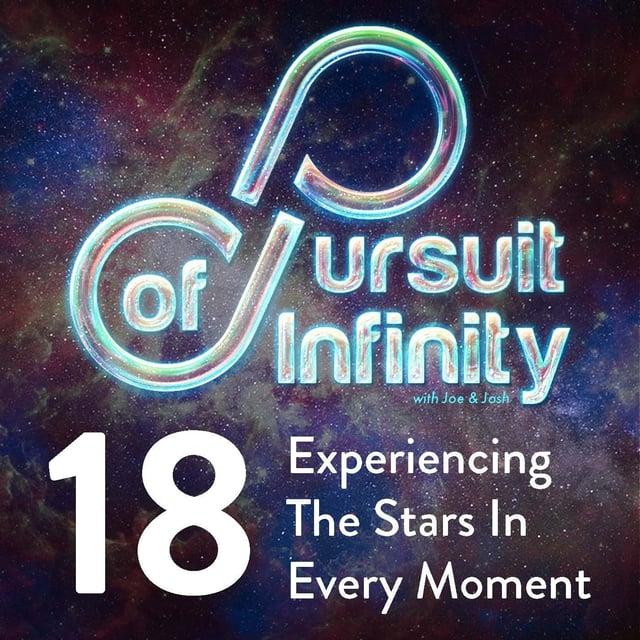

Even if these microphones were not in front of us, we would be doing the same thing. Discussing the topics that we hold dear to our hearts. Ideas that have profoundly changed who we are and how we think. Join me in todays discussion, where Joe and I get into why the space-time paradigm may be doomed, as the great Donald Hoffman has been so eloquently explaining as of late, and we talk about the profundity of psychedelics, and some of the lessons that can be learned from these deep, meaningful experiences.
_________________
Music By Nathan Willis RIP
Follow Pursuit Of Infinity:
www.PursuitOfInfinity.com
Discord: https://discord.io/pursuitofinfinity
YouTube: https://www.youtube.com/channel/UCPpwtLPMH5bjBTPMHSlYnwQ
Spotify: https://open.spotify.com/show/58he621hhQ7RkajcmFNffb
Apple Podcasts: https://podcasts.apple.com/ca/podcast/pursuit-of-infinity/id1605998093
Instagram: https://www.instagram.com/pursuitofinfinitypod/
Patreon: Patreon.com/PursuitOfInfinity

Even if these microphones were not in front of us, we would be doing the same thing. Discussing the topics that we hold dear to our hearts. Ideas that have profoundly changed who we are and how we think. Join me in todays discussion, where Joe and I get into why the space-time paradigm may be doomed, as the great Donald Hoffman has been so eloquently explaining as of late, and we talk about the profundity of psychedelics, and some of the lessons that can be learned from these deep, meaningful experiences.
_________________
Music By Nathan Willis RIP
Follow Pursuit Of Infinity:
www.PursuitOfInfinity.com
Discord: https://discord.io/pursuitofinfinity
YouTube: https://www.youtube.com/channel/UCPpwtLPMH5bjBTPMHSlYnwQ
Spotify: https://open.spotify.com/show/58he621hhQ7RkajcmFNffb
Apple Podcasts: https://podcasts.apple.com/ca/podcast/pursuit-of-infinity/id1605998093
Instagram: https://www.instagram.com/pursuitofinfinitypod/
Patreon: Patreon.com/PursuitOfInfinity




















